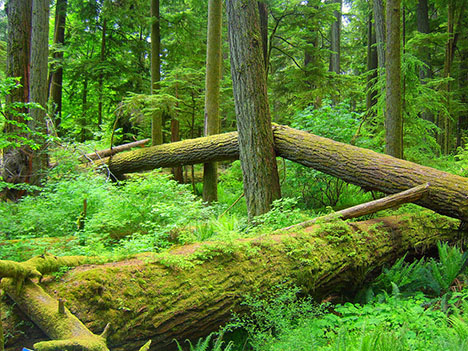OP/ED: B.C.'s "green" policy a whitewash
The following is a press release issued by BC Citizens for Public Power , a grassroots, non-profit organization established in 2002, working to ensure that BC’s electricity system is publicly owned, regulated, and operated by and for the citizens of B.C., through mobilization, education, and advocac.yIt’s not easy being green, as the saying goes, and nowhere more so than here in B.C..
After all, our province has an established reputation as an incubator for social and political change: B.C. is the birthplace of Greenpeace, the front line in the “war in the woods,” and the arena where environmentalists, First Nations, government, and business came together to create the Great Bear Rain Forest.
It is also the place where climate change has generated a massive mountain pine beetle infestation that is destroying the boreal forest, and where the provincial government is accelerating construction of run-of-river private power projects while encouraging expanded oil and gas development.
There is no question that genuine green solutions are urgently needed in B.C.’s energy sector—aggressive conservation programs, realistic forecasting of our domestic energy requirements, and research and development of renewable energy projects. But what has emerged, instead, through B.C.’s energy policy and the private power industry, is a growing body of evidence of “greenwashing.”
Since introducing its Energy Plan in 2002, the provincial government has entirely restructured the province’s electricity sector, prohibiting publicly-owned B.C. Hydro from engaging in new power generation and designating this function exclusively to the private sector. This energy policy has resulted in a “gold rush” mentality, with a handful of private corporations staking claims on First Nations territories and Crown land—with almost 800 private run-of-river power developments constructed, in development, or proposed.
What was once the “war in the woods” has become the “war on our waters.”
Inevitably, electricity generated by private power projects will far exceed domestic requirements. B.C. is being converted into what the government proudly calls a “green energy powerhouse”—at the expense of myriad social, environmental, and economic adverse impacts. Similarly, the CEO of one private power giant has repeatedly described B.C. as “the Saudi Arabia of run-of-river hydro opportunities,” conjuring images of widespread and irreparable damage to our rivers, wilderness, and wildlife for the purpose of exporting electricity to California to power air conditioners.
B.C.’s energy policy is also touted—by government and industry—as a solution to both climate change and the economic downturn. The new “green economy” promises thousands of private sector “green jobs” for British Columbians; conspicuously omitted from this creative messaging is the fact that these are only short-term construction jobs and that most private power hydro facilities are almost entirely automated. Also unacknowledged publicly, but buried in the provincial budget and related documents, is the fact that residential hydro rate increases are subsidizing private power developments. In addition to a three-per-cent hike last April and the two-tiered rate structure imposed in October, British Columbians can expect an additional 21per cent rate increase over the next three years.
Even the provincial government’s independent regulatory body, the BC Utilities Commission, issued a ruling last July that BC Hydro’s 2008 Long Term Acquisition Plan to purchase large quantities of private power was “not in the public interest.” Weeks later, the government issued a directive, effectively overruling the decision.
More recently, the B.C. government established a Green Energy Advisory Task Force to examine procurement and regulatory reform; carbon pricing, trade and export; community engagement and First Nations partnerships; and resource development. While the Task Force creates the impression of public consultation, membership consisted mostly of private power executives and associates, and the insufficient six week public comment period was merely an open invitation for submissions via email. Perhaps of greatest concern is the government’s refusal to publicize any submissions received by the Task Force; this lack of transparency provides the public with no assurances that their input has been considered and incorporated into the Task Force’s forthcoming recommendations.
At this crucial time, climate change reinforces our collective sense of urgency. But green energy opportunities must be more than the colour of money generated by profit-driven private power producers—invested in energy consumption, not conservation—and ultimately for the benefit of corporate shareholders. BC Hydro has been a profitable Crown utility for more than 50 years and, on the basis of that expertise and experience, is well positioned to remain a global leader in implementing ambitious conservation and demand side management programs as well as developing green energy projects—with revenues reinvested into BC’s social programs and services. Our province should have a moral imperative to do green energy the right way: placing the planet and the public good ahead of profit, through public ownership and oversight, regional planning, meaningful engagement with First Nations, and strict adherence to environmental standards.
Melissa Davis is the Executive Director of BC Citizens for Public Power.























Comments